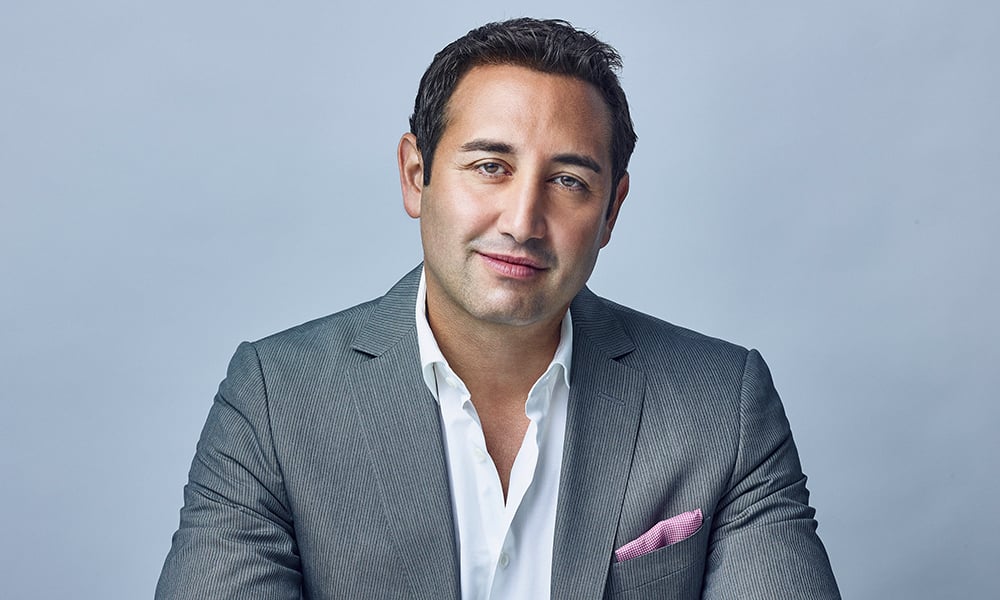
Ryan Naimark says technology comes with flexibility and efficiency which closes files more quickly

By forcing lawyers and other parties to a legal dispute to operate through video-conferencing, the COVID-19 pandemic has produced a new flexibility for all involved, and that has resulted in files being completed faster and more efficiently, says Ryan Naimark, founder of Naimark Law Firm, a plaintiff-side personally injury firm.
“Once people became aware of the technology and started to use the technology, most people liked it and my expectation is that things are never going to go back. The genie’s out of the bottle, says Naimark.
“Even if COVID were to end tomorrow – and we hope that it does but don't expect that it will … as long as the other side is willing, I'm very open to continue to use this technology, going forward. I just find it more convenient and more efficient.”
It was a different story when COVID struck in mid-March. “Everything was cancelled,” Naimark says. Examinations for discovery, mediations, pre trials, trials, arbitrations – nothing could go forward. Litigation is slow in the best of times and Naimark’s clients – many of whom are severely injured, not working and in precarious financial circumstances – had no choice but to see their matters halted.
But the silver lining in the shutdown was that calendars were cleared on all sides. Naimark and his colleagues were able to resolve more cases because opposing counsel and representatives from the insurance companies had a sudden surge of availability.
“In fact, April and May were the best months that we have ever had, to date, since I opened this firm in terms of the number of cases were able to resolve,” he says.
The stay-at-home orders also had a less welcome impact on Naimark’s business. With few on the roads in April and even into May, there were fewer accidents and therefore, fewer client files coming in. That has since stabilized as the province has opened back up.
Naimark says it was late April when the desire to finally move files forward led to his lawyers and the defence-side to begin taking advantage of the available alternatives. They began using video-conferencing services Zoom and Webex for examinations for discovery and mediations. Later, pre-trials began happening virtually as well and one of Naimark’s associates did an opposed motion by Zoom, for the first time, on Friday in Brampton. As the technology was adopted, Naimark began to see advantages.
There are fewer cancellations due to scheduling conflicts and being spared a commute gives everyone more time. Pre-COVID, mediations and other conferences would need to end promptly at 5 pm, even if just an hour-or-so more would resolve the case, because parties had to catch the GO Train back home. With everyone participating from the comfort of their own home, Naimark is finding more flexibility around timing, which helps files close more quickly in fewer meetings.
“The files suddenly went from completely stopped in their tracks and not moving, to actually moving, in some ways, more expeditiously than the normal,” Naimark says.
“I’ve spoken to many other lawyers at my firm, and they have all had similar experiences. It's just very efficient.”
Not only time, the new normal saves money too. For an in-person mediation, aside from the mediator, law firms must also pay for the room they use. Naimark’s firm also operates out of six offices around the GTA and having some of his 112 employees work from home will allow him to let go of some rent payments.
There are drawbacks as well. Screen-freezes and voice-cutting-outs and family/roommate distractions are a constant, and it is not easy to share documents, which is particularly relevant during discovery. There is also a possible access-to-justice issue, given that clients need internet and a device to participate.
“Another disadvantage, it's not quite as personal. You don't have the same personal connection as doing it in person,” Naimark says.
Media reports about Zoom-bombing and other security problems have not been a part of Naimark’s experience in the course of “literally hundreds” of meetings, he says.
COVID has created a massive trial backlog, in Ontario and across the country. Zoom and other video-conferencing is a good tool to alleviate that, says Naimark. Even if trials must happen in-person, the faster mediations and pre-trials move forward, the faster the courts can get to the trials.
Naimark was a partner at Zarek Taylor Grossman Hanrahan LLP, an insurance defence boutique, before starting his own firm in 2015. While it is a plaintiff-side personal injury boutique, experience on the insurance side is a mandatory pre-requisite for working at Naimark Law Firm. The firm employs 17 lawyers operating out of six offices across the GTA.